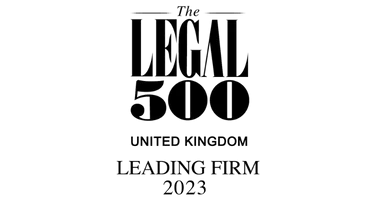- 29 Mar 2022
- •
- 2 min read
The debt crisis – the commercial perspective

The subject of financial vulnerability cannot be ignored in the current economic crisis. Elizabeth Ryall reflects on changes within the debt industry since beginning her career 18 years ago.
The progression towards fair outcomes and management of forbearance has not been swift, but it has been productive. Individuals can and should expect to receive a listening ear, time, consideration and options when they are struggling to repay a debt. This approach to debt recovery now feels so ingrained, but there is always work to be done. The industry is listening and I have no doubt that there will be innovative and practical solutions emerging to support those in need. But there is only so much which can be achieved when individual’s financial situations just cannot be rehabilitated.
Prices are rising at a fast pace, the fastest for 30 years. Energy bills are set to reach an average of £3,000 a year towards the end of 2022. The rise in food prices, priority bills and essentials will cause those who are already vulnerable to experience even more financial pressure. Following Chancellor Rishi Sunak’s spring statement, there are some positive steps such as an increase in the National Minimum Wage and benefit payments, however these rises will not cover increased costs and the net effect will be increased poverty. This is not new information, and this advancing problem should have been anticipated, notwithstanding the shock events in Ukraine. If the government does not step in to curb the impact on rising bills, then the downward trend into severe debt which is being seen across the UK will be steep.
A pressing issue for the government has to be the maintenance of domestic economic input – valuing and protecting small business who will also be suffering from financial shocks related to the issue of rising costs. The increase in National Insurance will make employing staff more expensive, the result of which could be increased unemployment. Energy prices and, for those in the hospitality sector, food prices rising will mean some tough decisions will need to be made. Whilst some short-term relief is available from the 50% discount on business rates, this represents a temporary fix and won’t alleviate the burden on finances. Small business are often at the mercy of large companies who have long delays on administering invoices, which increases pressure on cash flow and can destabilise a business which relies on swift payment to meet costs. Those who do have disposable income to spend on the high street, and hopefully within the local community, will feel the squeeze; with the possibility of reduced income and increased outgoings, the focus on managing cash flow is essential. For many it may mean make or break.
Trethowans are here to support local businesses and can offer assistance in recovery of unpaid bills and deal with existing contract disputes which can increase cash flow when it is most needed. We can offer flexible cost options and will seek practical resolutions for any entrenched debt which needs unlocking.
Please call me on 023 8082 0524 to discuss any debt related issues and to receive a no obligation quote.







